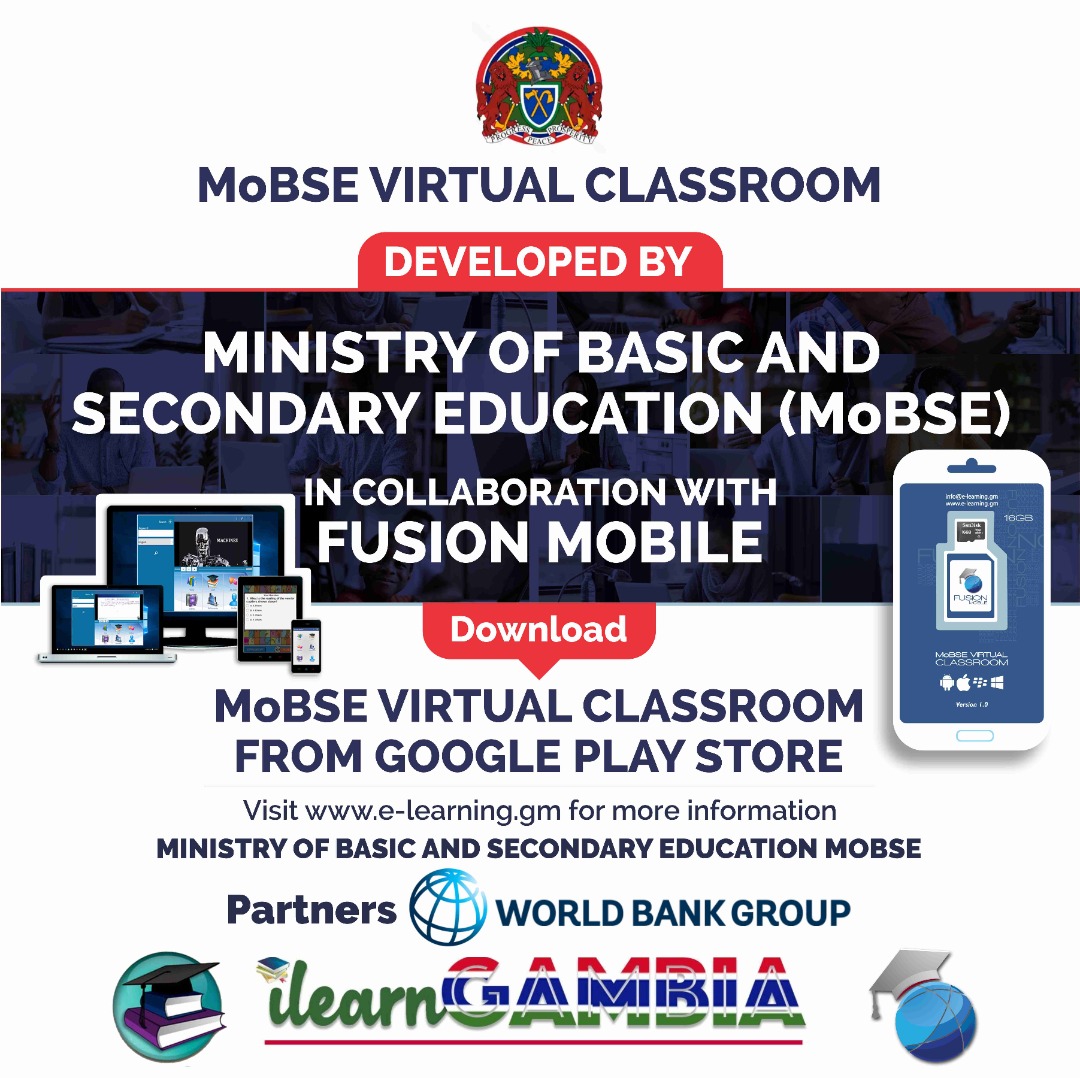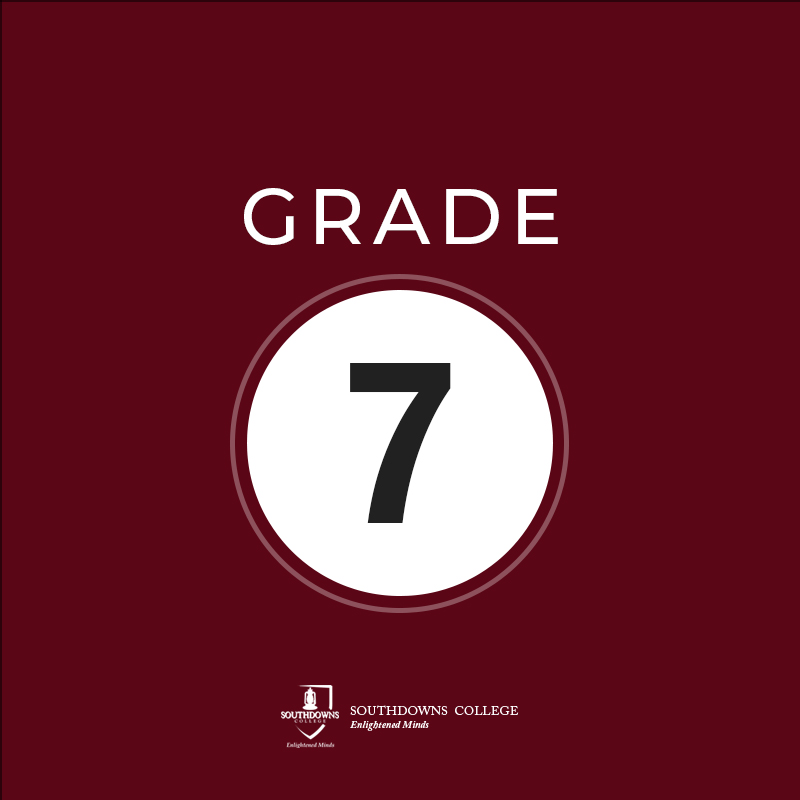Overview
Course Description
Grade 7 Lessons
Welcome to Grade 7, a significant year in your educational journey! Grade 7 is a crucial milestone in your basic and secondary education. It serves as a bridge between the foundational knowledge you've gained in earlier grades and the advanced learning you will encounter in the upcoming years.
As you step into Grade 7, you are entering a phase where independent thinking, critical analysis, and personal responsibility play a key role in your academic development. This is the year where you will build upon your existing skills and knowledge while also being introduced to new concepts and challenges.
What you'll learn
- In Grade 7 Mathematics, you will delve deeper into concepts such as algebra, geometry, fractions, and decimals. The course aims to enhance your problem-solving skills, critical thinking, and mathematical reasoning.
- Further Mathematics in Grade 7 builds upon the foundation laid in Mathematics. You will explore advanced topics such as trigonometry, calculus, and statistics. The goal is to prepare you for more complex mathematical challenges.
- The English Language course in Grade 7 focuses on improving your reading, writing, listening, and speaking skills. You will engage with various texts, grammar rules, and literary devices to enhance your communication abilities.
- In Grade 7 Biology, you will study living organisms, their structures, functions, and interactions with the environment. The course aims to cultivate an appreciation for the diversity of life and an understanding of fundamental biological processes.
- Chemistry in Grade 7 introduces you to the properties of matter, chemical reactions, and the periodic table. The course goal is to develop your experimental skills, scientific inquiry, and chemical knowledge.
- Physics explores the principles governing the physical world, including motion, energy, and forces. The course aims to cultivate your problem-solving abilities and conceptual understanding of natural phenomena.
- Agricultural Science in Grade 7 covers topics related to crop and animal production, soil management, and agricultural technologies. The goal is to deepen your knowledge of sustainable farming practices and agricultural innovations.
- In Grade 7 Geography, you will learn about the Earth's physical features, climate patterns, and human-environment interactions. The course aims to develop your spatial awareness, map reading skills, and global awareness.
- Commerce in Grade 7 introduces you to economic principles, business operations, and trade practices. The course goal is to foster an understanding of financial literacy, entrepreneurship, and the role of commerce in society.
- Grade 7 Accounting focuses on financial recording, analysis, and reporting. The course aims to equip you with the necessary skills to interpret financial statements, manage budgets, and make informed financial decisions.
- In Grade 7 Literature, you will explore various literary genres, authors, and themes. The course goal is to enhance your critical reading, interpretation, and appreciation of literary works.
- Economics in Grade 7 introduces you to economic systems, market dynamics, and global trade. The course aims to develop your understanding of economic principles, policies, and their impact on society.
- Junior WAEC Revision Classes in Grade 7 provide an opportunity for review and consolidation of key concepts across different subjects. The goal is to prepare you for the junior West African Examination Council (WAEC) assessment. Senior WAEC Revision Classes Senior WAEC Revision Classes offer focused preparation for the senior West African Examination Council (WAEC) assessment. The goal is to revise important topics, practice exam-style questions, and enhance your exam readiness.
- Social and Environmental Science explores social issues, environmental challenges, and sustainable development. The course aims to foster your civic engagement, environmental awareness, and critical thinking about societal issues.
- General Science in Grade 7 provides an interdisciplinary approach to science education, covering topics in biology, chemistry, and physics. The goal is to promote scientific literacy, inquiry skills, and an appreciation for the natural world.
- In Grade 7 French Language, you will study vocabulary, grammar, and communication skills in French. The course aims to develop your proficiency in the language and cultural understanding of French-speaking regions.
- Arabic Language in Grade 7 introduces you to the Arabic alphabet, pronunciation, and basic phrases. The course goal is to help you build a foundation in the Arabic language and appreciate Arab culture.
- Physical and Health Education in Grade 7 focuses on promoting physical fitness, sportsmanship, and health awareness. The course aims to develop your physical skills, teamwork, and knowledge of personal wellness practices.
- Introductory Technology in Grade 7 covers basics of technology, including computer literacy, digital skills, and technological innovations. The goal is to equip you with essential technological competencies for the digital age. As you navigate through these subjects in Grade 7, remember to stay curious, ask questions, and engage actively in your learning journey. Setting clear course goals and embracing challenges will lead you to academic success and personal growth.
Requirements
- A notebook or digital notepad to take notes and track progress
- Willingness to ask questions and seek clarification on challenging concepts
- Dedicated study time to engage with the lesson notes and practice activities
- Access to Grade 7 curriculum textbooks and supplementary reading materials
Course Content
117 Lectures
ENGLISH LANGUAGE
-
FIRST TERM PARTS OF SPEECH 1
-
FIRST TERM PARTS OF SPEECH 2
-
FIRST TERM CONCRETE NOUN
-
FIRST TERM NOUN NUMBER 1
-
FIRST TERM NOUN NUMBER 2
-
FIRST TERM NOUN NUMBER 3
-
FIRST TERM VERB 1
-
FIRST TERM FIRST TERM VERB 2
-
FIRST TERM REGULAR AND IRREGULAR VERB 1
-
FIRST TERM REGULAR AND IRREGULAR VERB 2
-
SECOND TERM NOUN NUMBER 1
-
SECOND TERM NOUN NUMBER 2
-
SECOND TERM FUNCTIONS OF NOUN 1
-
SECOND TERM FUNCTIONS OF NOUN 2
-
SECOND TERM ADVERB 1
-
SECOND TERM ADVERB 2
-
THIRD TERM FIGURES OF SPEECH 1
-
THIRD TERM FIGURES OF SPEECH 2
-
THIRD TERM SENTENCES BY FUNCTION OR PURPOSE
-
THIRD TERM SYNONYMS
-
THIRD TERM ANTONYMS
-
THIRD TERM NARRATIVE EASSY
-
THIRD TERM COLLECTIVE NOUNS
-
THIRD TERM DEMONSTRATIVE PRONOUN
-
THIRD TERM ESSAY WRITING NARRATIVE ESSAY
-
THIRD TERM MODAL AUXILLARY VERB
-
THIRD TERM PRONOUN
FRENCH
-
FIRST TERM PARLER DE SA VILLE
-
FIRST TERM DECRIRE ET CARACTERISER UN LIEU HISTORIQUE
-
FIRST TERM LA LOCALISATION
-
FIRST TERM PARLER DES DEPLACEMENTS DANS SA VILLE
-
FIRST TERM INDIQUER UN ITINETALRE
-
FIRST TERM INDQUER LA CHRONOLOGIE DE LA VISITE DE LA VILLE
-
SECOND TERM DECRIRE SON LOGEMENT ET SA CHAMBRE
-
SECOND TERM PARLER DE SES LOISIRS ET DE SES PASSE-TEMPS
-
SECOND TERM L'HEURE
-
SECOND TERM LA DATE
-
THIRD TERM INVITER QUELQU'UN A UN EVENEMENT
-
THIRD TERM ACCEPTER REFUSER UNE INVITATION
-
THIRD TERM LES ALIMENTS
-
THIRD TERM EXPRIMER LA QUANTITE
-
THIRD TERM DECRIRE ET CARACTRISER UN LIEU HISTORIQUE
-
THIRD TERM POUR CREER UNE BROCHURE TOURISTIQUE DE SA VILLE
GENERAL SCIENCE
-
FIRST TERM WHAT IS SCIENCE
-
FIRST TERM MATTER AND ITS PROPERTIES
-
FIRST TERM LIVING THINGS AND NON LIVING THINGS 1
-
FIRST TERM LIVING THINGS AND NON LIVING THING 2
-
FIRST TERM LIVING THINGS AND NON LIVING THINGS 3
-
FIRST TERM UNICELLULAR AND MULTICELLULAR ORGANISMS
-
FIRST TERM UNINCELLUR ORGANIZIM PARAMESUIM
-
FIRST TERM TECHNOLOGY 1
-
FIRST TERM TECHNOLOGY 2
-
FIRST TERM TECHNOLOGY 3
-
SECOND TERM THE SIMPLIEST FORM OF MATTER
-
SECOND TERM PROPERTIES OF MATTER 1
-
SECOND TERM PROPERTIES OF MATTER 2
-
SECOND TERM WHAT IS FORCE 1
-
SECOND TERM WHAT IS FORCE 2
-
SECOND TERM FORCE AND ENERGY 1
-
SECOND TERM FORCE AND ENERGY 2
-
THIRD TERM ECOLOGY
-
THIRD TERM FOOD 1
-
THIRD TERM FOOD 2
-
THIRD TERM WATER 1
-
THIRD TERM AMPHIBIANS
-
THIRD TERM MAGNETIC FORCE
-
THIRD TERM WAYS OF SOFTENING HARD WATER
-
THIRD TERM HABITAT
AGRICULTURAL SCIENCE
-
FIRST TERM CLASSIFICATION BY USES
-
FIRST TERM SOIL TEXTURE
-
FIRST TERM SOIL
-
FIRST TERM FORAGE
-
FIRST TERM SEDIMENTARY AND METAMORPHIC ROCKS
HOME SCIENCE
-
FIRST TERM FAMILY
-
FIRST TERM EXTENDED FAMILY
-
FIRST TERM ROLE OF THE FATHER
-
FIRST TERM ROLE OF THE MOTHER
-
FIRST TERM ROLE OF THE FAMILY AS A GROUP
-
FIRST TERM ROLE OF THE CHILDREN
-
SECOND TERM GOOD POSTURE
-
FIRST TERM SINGLE PARENT FAMILY
-
SECOND TERM GOOD WALKING POSTURE
-
SECOND TERM GOOD WORKING AND READING POSTURE
SOCIAL ENVIRONMENTAL SCIENCE
-
FIRST TERM INTRODUCTION TO SES
-
FIRST TERM SOURCE OF HISTORY
-
FIRST TERM ETHNIC GROUPS IN THE GAMBIA
-
FIRST TERM SONGHAI UNDER SUNNI ALI AND ASKAI MUHAMMED
-
FIRST TERM THE ANCIENT EMPIRE OF WESTERN SUDAN
-
FIRST TERM REASONS FOR THE RISE OF ANCIENT GHANA EMPIRE
-
FIRST TERM MANDINKO
-
FIRST TERM THE REASON FOR THE MANDINKO TO MIGRATE TO THE GAMBIA
-
FIRST TERM TRADITIONAL CULTURE IN THE GAMBIA
-
FIRST TERM TRADITIONAL RELIGION MODE OF WORSHIP
-
FIRST TERM TRADITIONAL RELIGION MODE OF WORSHIP 2
-
FIRST TERM TRADITIONAL SYSTEMS 1
-
FIRST TERM TRADITIONAL SYSTEMS 2
-
SECOND TERM TRADITIONAL WAYS OF EARNING A LIVING IN THE GAMBIA
-
SECOND TERM TRADITIONAL OR LOCAL INDUSTRIES ASSOCIATED WITH COTTON
-
SECOND TERM CRAFT MAKING
-
SECOND TERM FARMING
-
SECOND TERM ANIMAL REARING IN THE GAMBIA
-
SECOND TERM FISHING
-
SECOND TERM FISH PROCESSING
-
THIRD TERM ORGANIZATION FOR THE DEVELOPMENT OF THE GAMBIA RIVER BASIN
-
THIRD TERM FUNCTIONS OF COMMISSIONERS 1
-
THIRD TERM FUNCTIONS OF COMMISSIONERS 2
-
THIRD TERM THE ASSOCIATION OF NON GOVERNMENTAL ORGANIZATIONS
-
THIRD TERM THE POLICY OF ASSIMILATION
-
THIRD TERM CHIEFS
-
THIRD TERM IMPORTANCE OF SONGS
-
THIRD TERM THE GAMBIA'S MAJOR TRADING PARTNERS
MATHEMATICS
-
FIRST TERM ALGEBRAIC EXPRESSION AND LINEAR EQUATION
-
FIRST TERM ALTERNATE ANGLE 2
-
FIRST TERM ANGLES EXERCISES 1
-
ANGLES EXERCISES 2
-
ANGLES IN PAIRS 1
-
ALTERNATE ANGLE 1
About the instructor
STED MoBSE The Gambia
iLearn Gambia
All lessons on this platform are developed by experienced teachers from various Basic and Secondary Schools under the Ministry of Basic and Secondary Education (MoBSE). Each lesson is carefully designed to support your learning needs and align with national curriculum standards.
We encourage you to enrol and share your feedback to help us continuously improve future lessons.
For further inquiries, please contact the Science and Technology Education Directorate (STED), Ministry of Basic and Secondary Education.
At the end of each lesson, learners should be able to demonstrate understanding and apply the concepts covered.

